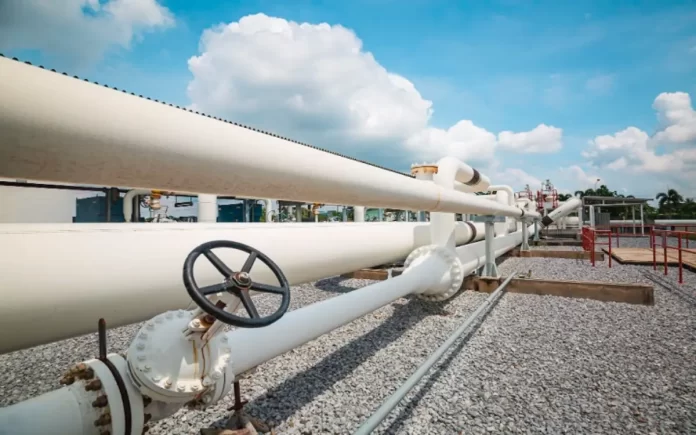Islamabad: In the unfolding saga of the Iran-Pakistan gas pipeline project, the United States has thrown its weight behind warnings and threats. Matthew Miller, spokesperson for the US State Department, minced no words, expressing Washington’s disapproval of the endeavor on Wednesday.
“We do not support this pipeline going forward. We always advise everyone that doing business with Iran runs the risk of touching upon and coming in contact with our sanctions, and would advise everyone to consider that very carefully,” cautioned Miller, delivering a stark message to the Pakistani government regarding potential repercussions for engaging in business with Tehran.
Pakistan’s petroleum minister, Musadik Malik, revealed Pakistan’s plan to approach the US, seeking a waiver for the gas pipeline project. “Pakistan will vigorously present its case and will try to seek exemption from US sanctions by presenting technical and political arguments,” asserted Malik, as reported by news agency The News. He also affirmed that construction on the gas pipeline project would commence imminently.
Read More: India’s $3.7 Billion Plan: Fencing the Myanmar Border
However, Pakistan finds itself ensnared in a web of complications following Iran’s issuance of a third notice in January. In this notice, Iran expressed its intent to pursue arbitration court proceedings against Pakistan for its failure to lay the pipeline as stipulated in the Iran-Pakistan gas line project agreement.
Iran has not minced words either, brandishing the threat of an $18 billion fine against Pakistan for what it perceives as a breach of contract, signaling its resolve to pursue legal action in the international arbitration court.
Since its announcement in 2009, the project has been beleaguered by delays, with the initial deadline of 2015 slipping by. Pakistan attributes its inability to complete the project within its territory to the weight of US sanctions imposed on Iran, a stance Tehran has yet to endorse.
Despite hurdles, Iran has forged ahead, completing the laying of a 900-kilometre pipeline, underscoring its commitment to the project.
Dubbed the Peace Pipeline, the Pakistan-Iran gas pipeline represents a long-term venture between Tehran and Islamabad, aimed at transporting natural gas from Iran to its neighboring Pakistan, according to Reuters.
Notably, Iran and Pakistan inked a five-year trade plan in August 2023, setting a bilateral trade target of $5 billion, indicative of their aspirations for deeper economic cooperation.
However, against the backdrop of economic turmoil, Pakistan finds itself grappling with an economic crisis, teetering on the precipice of seeking its 24th bailout from the International Monetary Fund.



